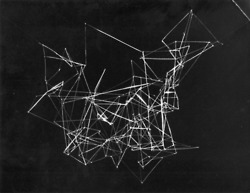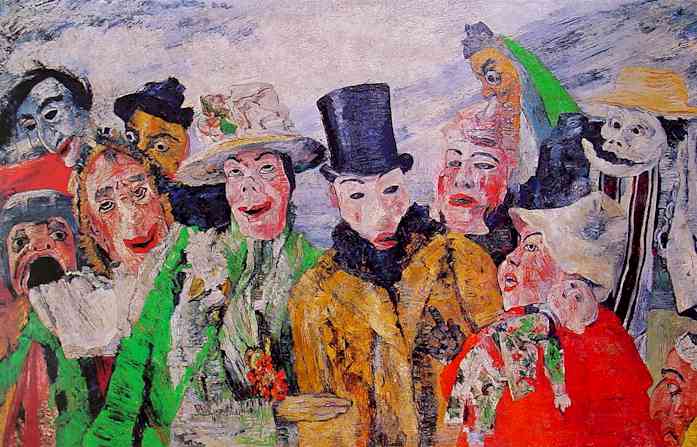mokykliniai reikalai (1)
Galvoju reikia pradėt dalintis citatom. Gal ateis laikas ir ne tik citatoms.
Gilles Deleuze, Essays Critical and Clinical. Verso, 1998.
"To write is certainly not to impose a form (of expression) on the matter of lived experience. Literature rather moves in the direction of the ill-formed or the incomplete, as Witold Gombrowicz said as well as practiced. Writing is a question of becoming, always incomplete, always in the midst of being formed, and goes beyond the matter of any livable or lived experience. It is a process, that is, a passage of Life that traverses both the livable and the lived. Writing is inseparable from becoming: in writing, one becomes-woman, becomes-animal or -vegetable, becomes-molecule, to the point of becoming-imperceptible. […] Becoming does not move in the other direction, and one does not become Man, insofar as man presents himself as a dominant form of expression that claims to impose itself on all matter, whereas woman, animal, or molecule always has a component of flight that escapes its own formalization. The shame of being a man - is there any better reason to write? Even when it is a woman who is becoming, she has to become-woman, and this becoming has nothing to do with a state she could claim as her own. To become is not to attain a form (identification, imitation, Mimesis) but to find the zone of proximity, indiscernibility, or undifferentiation where one can no longer be distinguished from a woman, an animal, or a molecule-neither imprecise nor general, but unforeseen and non-preexistent, singularized out of a population rather than determined in a form.” (1-2)
“To write is not to recount one's memories and voyages, one's loves and griefs, one's dreams and phantasms. It is the same thing to sin through an excess of reality as through an excess of the imagination.” (2)
“The writer as such is not a patient but rather a physician, the physician of himself and of the world. The work is set of symptoms whose illness merges with man. Literature then appears as an enterprise of health; not that the writer would necessarily be in good health (there would be the same ambiguity here as with athleticism), but he possesses irresistible and delicate health that stems from what he has seen and heard of things too big for him, too strong for him, suffocating things whose passage exhausts him while nonetheless giving him the becomings that dominant and substantial health would render impossible. The writer returns from what he has seen and heard with red eyes and pierced eardrums” (3)
“Health as literature, as writing, consists in inventing a people that is missing.” (4)
“Though it always refers to singular agents [agents] literature is a collective assemblage [agencement] of enunciation. Literature is delirium, but delirium is not a father-mother affair; there is no delirium that does not pass through peoples, races, and tribes and that does not haunt universal history. All delirium is world historical, "a displacement of races and continents." Literature is delirium, and as such its destiny is played out between the two poles of delirium. Delirium is a disease, the disease par excellence, whenever it erects a race it claims is pure and dominant. But it is the measure of health when it invokes this oppressed bastard race that ceaselessly stirs beneath dominations, resisting everything that crushes and imprisons, a race that is outlined in relief in literature as process. Here again, there is always the risk that a diseased state will interrupt the process or becoming; health and athleticism both confront the same ambiguity, the constant risk that a delirium of domination will be mixed with a bastard delirium, pushing literature toward a larval fascism, the disease against which it fights - even if this means diagnosing the fascism within itself and fighting against itself. The ultimate aim of literature is to release this creation of a health or this invention of a people-that is, a possibility of life - in the delirium. To write for this people that is missing ... (for means less 'in the place of' than 'for the benefit of').” (4)
“There are many diverse indications and procedures that the writer can apply to language in order to create a style. And whenever a language is submitted to such creative treatments, it is language in its entirety that is pushed to its limit, to music or silence” (55).
“Selecting singular cases and minor scenes is more important than any consideration of the whole.” (57)
“But it is also the reality of American literature, under these two aspects: spontaneity or the innate feeling for the fragmentary, and the reflection on living relations that must constantly be aquired and created” (60)
“It is libido’s business to haunt history and geography, to organize formations of worlds and constellations of universes, to make continents drift and to populate them with races, tribes, and nations” (62)
“Everyone can talk about his memories, invent stories, state opinions in his language; sometimes he even acquires a beautiful style, which gives him adequate means and makes him an appreciated writer. But when it is a matter of digging under the stories, cracking open the opinions, and reaching regions without memories, when the self must be destroyed, it is certainly not enough to be a ‘great’ writer, and the means must remain forever inadequate. Style becomes nonstyle, and one’s language lets an unknown foreign language escape from it, so that one can reach the limits of language itself and become something other than a writer, conquering fragmented visions that pass through the words of a poet, the colors of a painter, or the sounds of a musician” (113)
“the subjective disposition, that is to say, the force through which the images projected, is inseparably political, erotic, and artistic” (118)
“Character must not be confused with an ego. At the most profound level of subjectivity, there is not an ego but rather a singular composition, an idiosyncrasy, a secret cipher making marking he unique chance that these entities had been retained and willed, that this combination had been thrown and not another” (118)
“Character is the Beast: mind, will, desire, a desert-desire that brings together heterogenous entities” (118)
“The body without organs is an affective, intensive, anarchist body that consists solely of poles, zones, thresholds, and gradients. It is traversed by a powerful, nonorganic vitality.” (131)
“The way to escape judgment is to make yourself a body without organs, to find your body without organs” (131)
“combat, combat everywhere; it is combat that replaces judgment. And no doubt the combat appears as a combat against judgment, against its authorities and its personae. […] it is combatant himself who is combat: the combat between his own parts, between the forces that either subjugate or are subjugated, and between the powers that express these relations of force. [] The combat-between is the process through which a force enriches itself by seizing hold of other forces and joining itself to them in a new ensemble: a becoming. […] But whenever someone wants to make us renounce combat, what he is offering us is a ‘nothingness of the will’, a deification of the dream, a cult of death […] But neither is combat a ‘will to nothingness.’ Combat is not war. War is only a combat-against, a will to destruction, a judgment of God that turns destruction into something ‘just.’ The judgment of God is on the side of war, and not combat. […] war is the lowest degree of the will to power, its sickness” (132-133)
“Herein, perhaps, lies the secret: to bring into existence and not to judge. If it is so disgusting to judge, it is not because everything is of equal value, but on the contrary because what has value can be made or distinguished only by defying judgment. What expert judgment, in art, could ever bear on the work to come? It is not a question of judging other existing beings, but of sensing whether they agree or disagree with us, that is, whether they bring forces to us, or whether they return us to the miseries of war, to the poverty of the dream, to the rigors of organization” (135).
“fragmentation ‘is indispensable if one does not want to fall into representation…Isolate the parts. Make them independent as a way of giving them a new dependence’ [Robert Bresson] Disconnect them to allow for a new connection. Fragmentation is the first step in a depotentialization of space, through local paths” (165)

